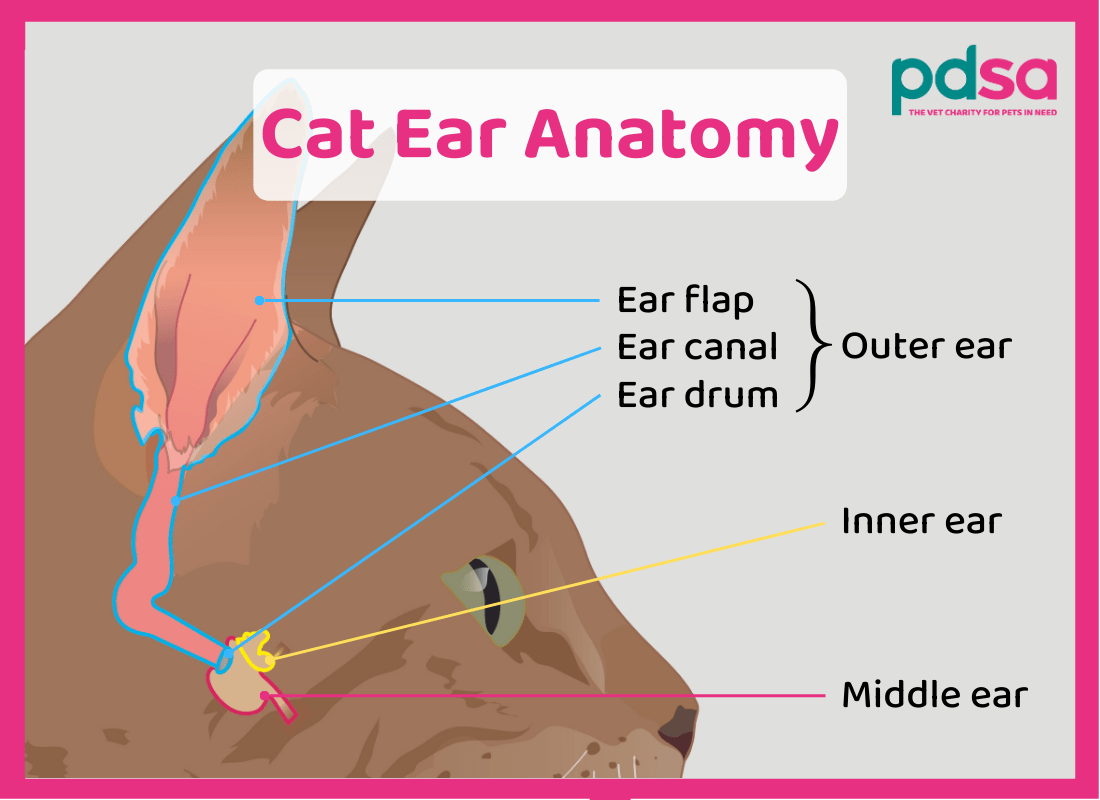Ear problems in cats – an overview
Symptoms of ear problems in cats
Symptoms of an ear problem include:
- Itchy ear(s)
- Hot and swollen ear(s)
- Painful ear(s) – they may become head shy or not want to be stroked
- Smelly ear(s)
- Head shaking and face rubbing
- A swollen droopy earflap, also called an ‘aural haematoma’
- Discharge, dirt, wax or blood from the ear(s)
If your cat has a more serious problem affecting their middle or inner ear (see diagram above), they may also develop the following symptoms:
- A head tilt
- Loss of balance
- Flickering eye movements
Common ear problems in cats
Some of the most common ear problems in cats include:
Ear infections – an irritating and painful overgrowth of bacteria or yeast inside the ear, often caused by another underlying problem.
Allergic skin disease – skin disease often includes the ears and causes red, inflamed, itchy skin.
Ear mites – tiny parasites that cause very itchy ears and infections.
Aural haematoma – a blood blister in the earflap, often caused by an underlying problem that irritates the ear.
Ear polyps – non-cancerous growths inside the ear canal.
Ear cancer – such as a squamous cell carcinoma on the earflap.
Vestibular disease – an inner ear problem that affects balance.
Ear injuries – such as wounds and bites.
Foreign objects in the ear – such as grass seeds.
Severe allergic reactions – if both your cat’s ears suddenly become very swollen, red and puffy, and they have swelling elsewhere (such as their face, eyes, nose or feet) this could be the beginning of an allergic reaction to something. If you think this is the case, call your vet immediately.
Published: January 2023
Did you find this page useful?
Tell us more
Please note, our vets and nurses are unable to respond to questions via this form. If you are concerned about your pet’s health, please contact your vet directly.
Thank you for your feedback
Want to hear more about PDSA and get pet care tips from our vet experts?
Sign up to our e-newsletter
Written by vets and vet nurses. This advice is for UK pets only. Illustrations by Samantha Elmhurst.


